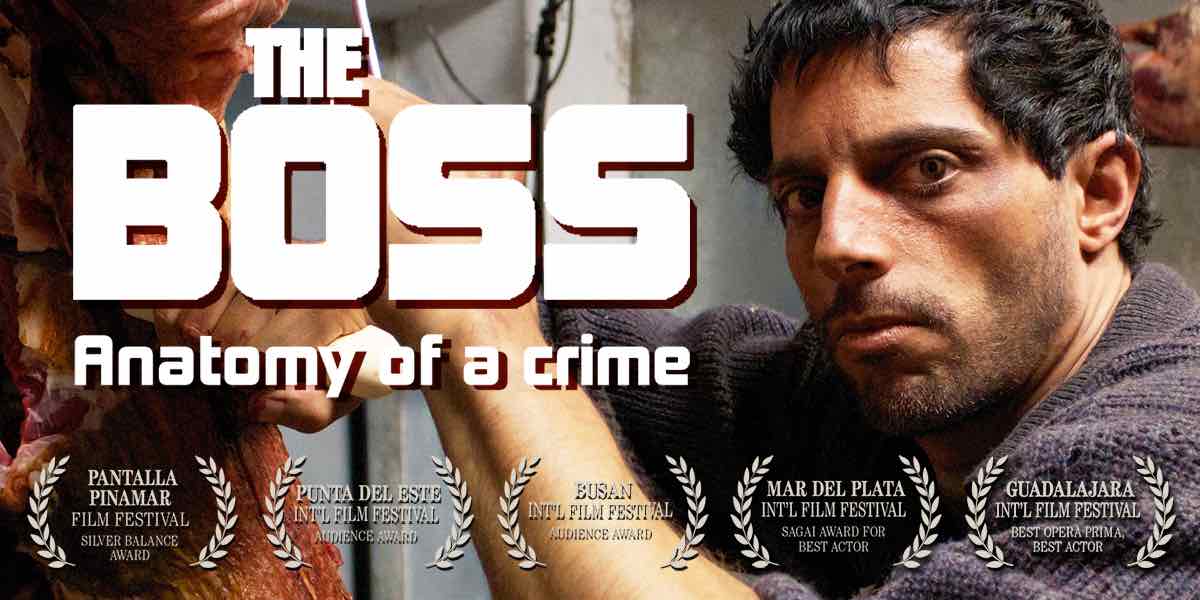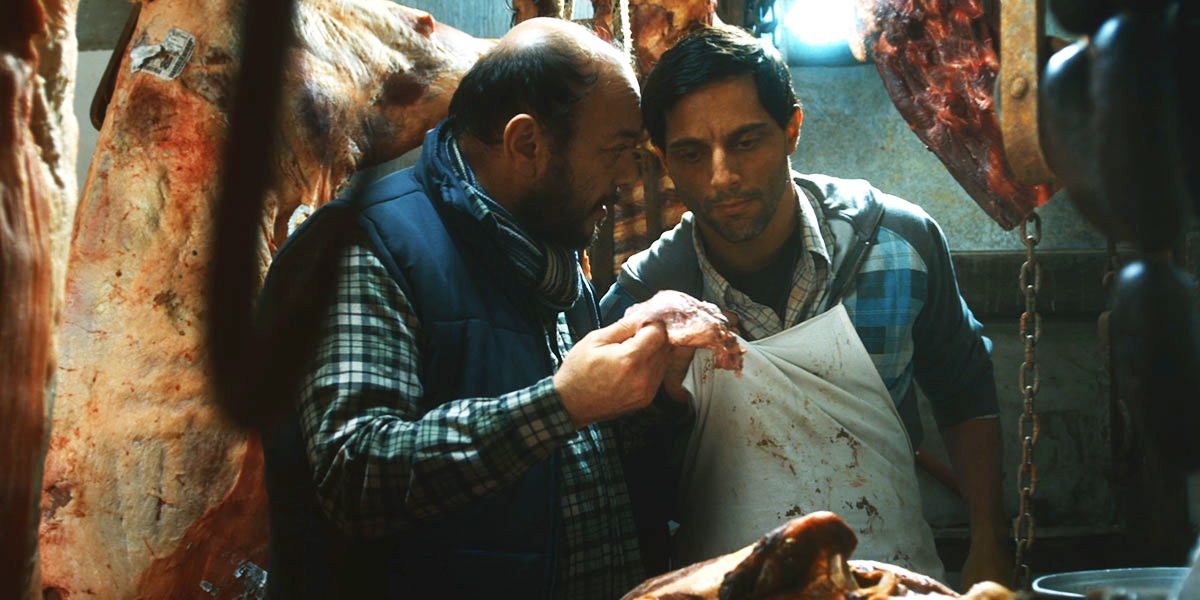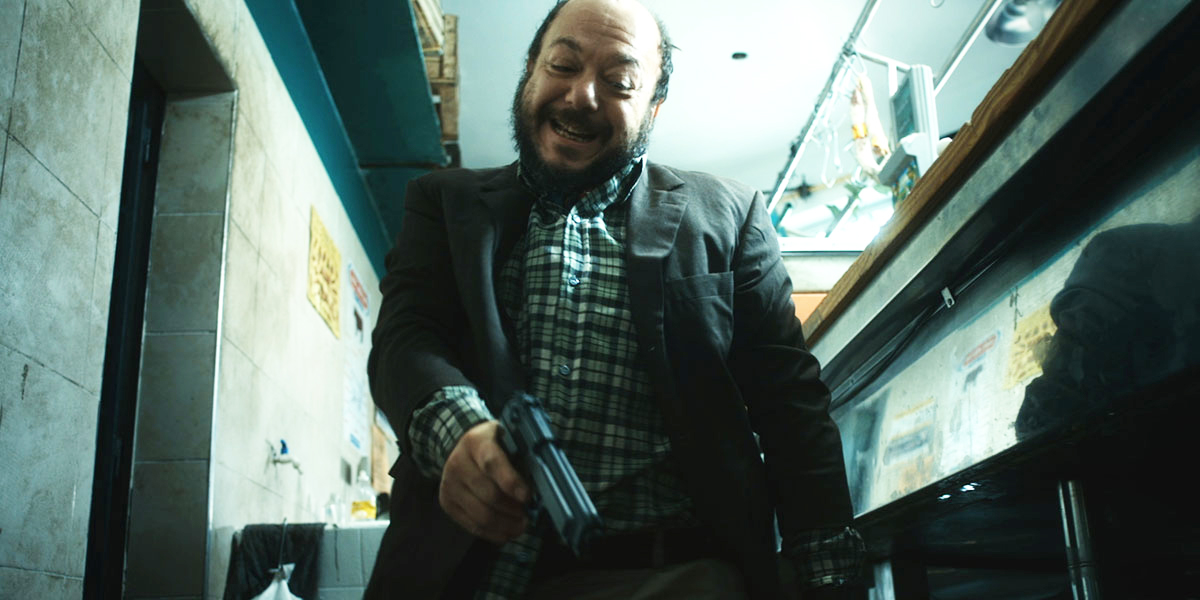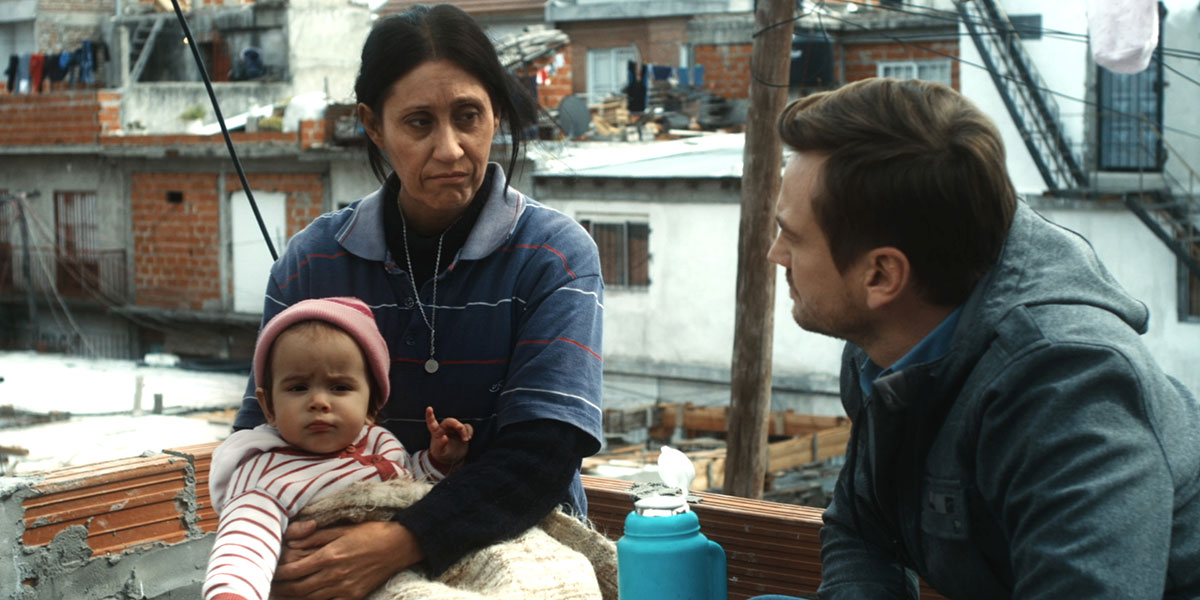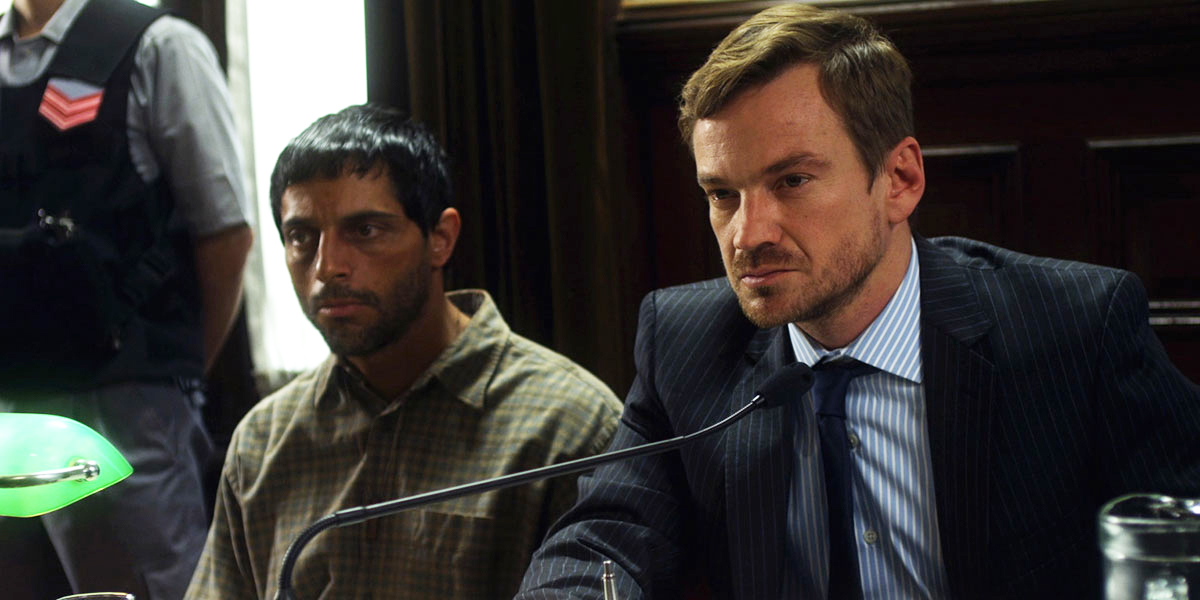With Joaquín Furriel, Luis Ziembrowski, Mónica Laraina, Germán De Silva, Guillermo Pfening
Based on a true story, The Boss, Anatomy of a Crime is a neo-realistic portrait of the inhumane work environment, and the power imbalances existing between worker and employer.
The multiple award-winning film tells the unsettling story of Hermógenes, a humble illiterate farmhand who arrives in Buenos Aires in search of a job.
Having been filled with self-deprecation and feelings of uselessness ever since he was stamped “not apt” on his military papers because of his limp, Hermógenes doesn’t expect much. So when Don Latuada puts him in charge of one of his butcher shops he is extremely grateful. In exchange, he forces him to disguise and sell rotten meat while subjecting him, by means of pressure and extortion, to a modern day slavery situation. The overwhelming manipulation and escalating cruelty will inevitably lead to tragedy…
